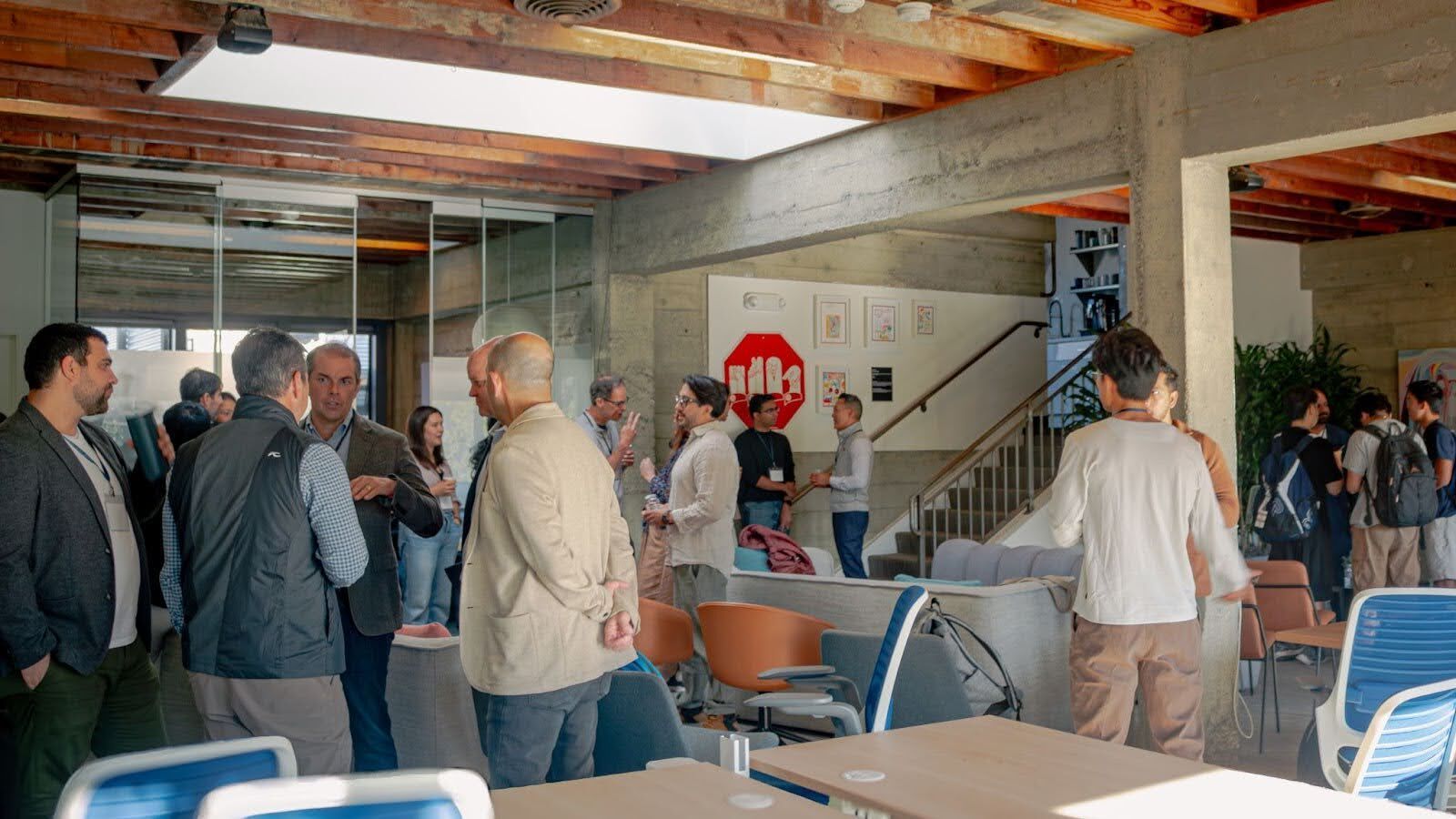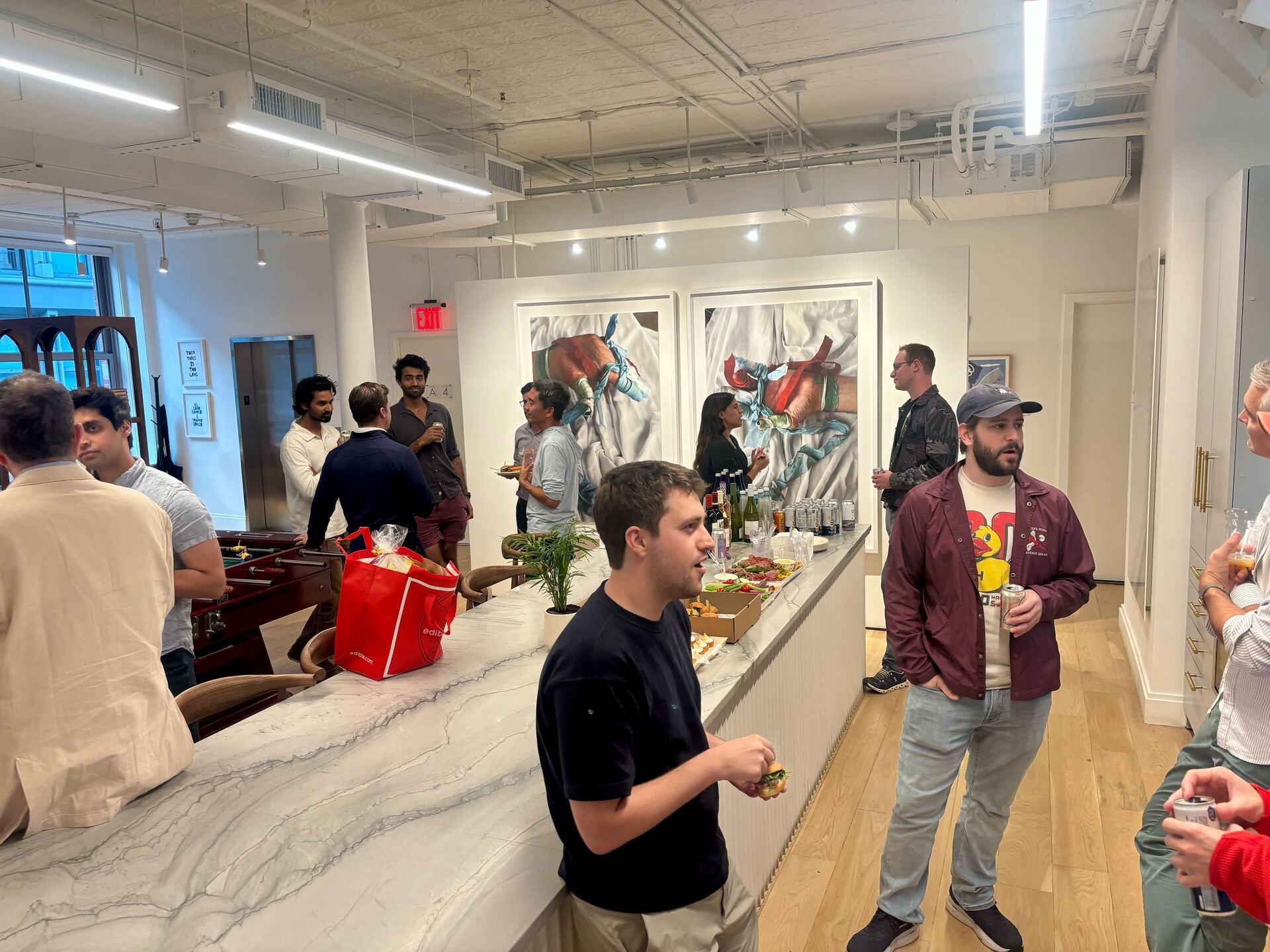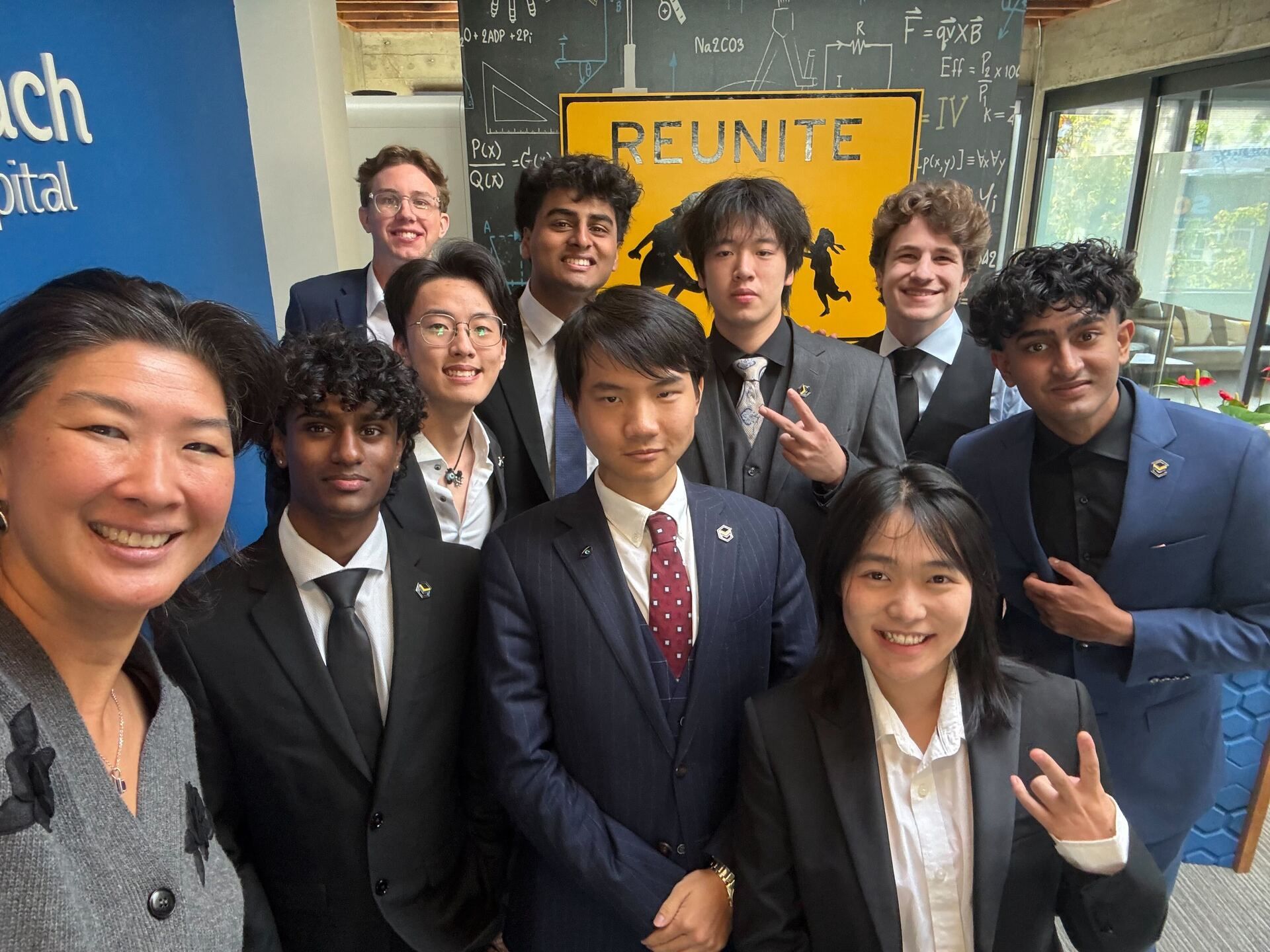
Welcome to The Wire
Each month, we deliver fresh insights into the world of learning, health, and work — combining news and data we’re tracking, perspectives from the team at Reach Capital, and updates from our portfolio. Subscribe for the latest.
Last Friday, as part of SF Tech Week, Reach and Inflect Health brought together over 40 health founders and clinicians for breakfast. Over cold brew and frittatas, we unpacked the hair-on-fire problems in health care, and how to find the right buyer inside labyrinthine health systems.

Healthcare SF Tech Week Event @ Reach HQ

Breakfast Conversation: What Clinicians Want Tech to Know
Highlights from the conversation:
It’s poor manners to talk about bodily fluids during meals. But Dr. Vinit Madhvani brought up urine sampling as one of the biggest pain points for clinicians. Getting patient samples remains inefficient, and decades of attempts at innovation — including vending machines that dispense cups and process samples — are hard to scale. A reminder that some longstanding human behaviors are simply hard to change.
It’s essential to have a champion advocate, ideally a practicing clinician with domain expertise in your problem area, says Dr. Edward Cho, a national physician director leading rapid tech implementation cycles at Vituity. With average sales cycles as long as two years and frequent CEO turnover, these relationships can compress timelines to months.
The most impactful solutions keep humans in the loop. Clinicians may be cautious with new technology, but they’re quick to adopt tools that make work easier, faster, or more affordable. As Dr. Dave Feldman noted, these are the factors that made the CT scan indispensable for rapidly diagnosing appendicitis.
Hospitals in the Bay Area and other major metros are generally open to new technologies. But elsewhere, health systems take a conservative approach due to limited resources, clinician resistance, and skepticism toward startups. When a system prefers to be a later adopter (not the first), having an internal advocate who understands daily workflows can make the difference between a pilot and a pass.
From the Portfolio
Latest Deals

Outsmart College Founders
We are thrilled to be a part of Outsmart’s $25 million round, led by DST Global and Forerunner, and joined by Khosla Ventures, Lightspeed, and others!
Outsmart is rebuilding higher education for the AI era — smarter, faster, more fun than lectures, and with less debt. Two of their co-founders, Jorge Mazal and Gina Gotthilf, are no strangers to the Reach community, having led an AMA about their time leading product and growth at Duolingo. We’re thrilled to welcome them officially to the portfolio!
Follow-on
Lingokids, the leading game-based educational app for kids ages 2-8 trusted by more than 185 million families worldwide, raised $120 million led by BullhoundCapital and General Catalyst’s Customer Value Fund. We first invested in the Barcelona-based company’s Series A round in 2018. More details in the company blog.
Research & Results
AI tutors and LLMs are great assistants but ineffective teachers, often bypassing the productive struggle and natural dialogue fundamental to high-quality tutoring. In response, Polygence and Stanford researcher Dorottya Demszky published TeachLM, fine-tuning AI on 100,000 hours of one-on-one human tutoring sessions.

The result: student talk time doubled, conversational depth increased by 50%, and instruction became far more natural and personalized.
AI won’t replace great teachers; it must learn from them. Polygence's research provides the first data-driven roadmap for doing so.
Wins & News
Campus has acquired the learning app Sizzle AI and tapped its founder, Jerome Pesenti (who was previously Meta’s former AI head) to be its new CTO. The move accelerates the company’s “engineering roadmap by 2-3 years,” said Tade Oyerinde, Campus founder and chancellor.
A feature on Curvepoint’s WI-AI pilot at Chartiers Valley School District in Pennsylvania, which turns existing Wi-Fi signals into invisible radar that detects concealed weapons while preserving privacy.
Larissa Phillips, a columnist for The Free Press, recounts her experience working with The Disagreement to repair a friendship fractured by politics and culture wars. The Disagreement is a media and learning company celebrating healthy debates and different viewpoints.
Writing in Edtech Insiders, Ednition CEO Mick Hewitt explores how K-12 student rostering has evolved from a cost center to growth catalyst, thanks to the emergence of new AI-enabled infrastructure technology.
Kaipod Learning was one of 11 recipients of the Yass Prize Texas Freedom Award, which honors new school model providers serving families seeking quality education choice programs.
Replit ranks third among AI tools that startups spend money on — trailing only OpenAI and Anthropic — according to an a16z and Mercury analysis of transaction data from over 200,000 customers between June and August 2025.
At the Stellic Partner Summit in Washington D.C., students, educators and advisors gathered to share perspectives around creating more connected and intentional advising experiences that help learners navigate college and graduate. Photos and a recap here.
Partner Perspectives
Writing with AI is not about replacing effort, but refining it. Tony Wan shares what’s working when it comes to “vibe writing” with authenticity, drawing from skills, experience and confidence built over time with human teachers and editors. These tips also reflect timeless competencies that are crucial for future generations of writers to develop.
As AI reshapes how we express ourselves, the integrity of human writing matters more than ever. We’re hopeful to see solutions that prepare students to have relationships with AI editors that preserve the authentic grit and joy of the writing process.
Like many social institutions, our schools are fighting for relevance. Students aren’t showing up, homework feels detached from the real world, and only 1 in 10 GenZers look forward to school.
AI is only accelerating the disconnect. But rather than crafting yet another tech-use policy, this is a pivotal moment to re-examine schools’ purpose: a community where students acquire not just knowledge but civic values, where they learn to work across differences. In a world that can feel increasingly polarized and isolated, we need this more than ever, writes Jennifer Carolan.
Americans are taking more medications and supplements than ever, at growing costs, dubious results, and sometimes even worse quality of life. As polypharmacy (the regular use of five or more prescription medications) grows, so do risks of injury.
In her newest healthcare thesis, Jomayra Herrera highlights some promising approaches: helping patients safely step off medications they no longer need, creating smarter supplement plans, and food-as-medicine programs that improve health and lower costs. If you're building in this space, or know someone who is, reach out!
The Data Room
If you’re building solutions to move the needle on these figures, or in other areas across learning, health, and work, we’d love to hear from you!
Work
READY OR NOT: According to a new survey from The College Board and the U.S. Chamber of Commerce, 4 in 5 hiring managers say high school students are not prepared to enter the workforce, and current graduates are less prepared than previous classes. Over 90% say there should be more business education in high school.
— Just 2% of Gen Z share the top values employers want: achievement, learning and desire to work for work’s sake, according to a recent study of 45,000 Americans. Gen Z’s top priorities: self care and personal pleasure, individual expression, and helping others.
Health
GOING WITH THE FLOW: U.S. digital health startups raised $3.5 billion across 107 deals in Q3 2025, and are on track to surpass last year’s totals, according to Rock Health’s tally. “Clinical workflow and non-clinical workflow are now 2025’s two most-funded value propositions, together capturing 42% of sector funding.”
Learning
REPORT CARD BLUES: Just 35% of Americans are satisfied with the quality of education that K-12 students receive in the U.S. today, marking an eight-percentage-point decline since last year’s Gallup survey.
Events & Conferences
Oh, the places we’ve gone

East coast represent!

Reach NYC office warming with our founders, advisors, and partners.

Wayee Chu welcoming undergrads from the University of Michigan
Job Opportunities
Next Moves
Big moves start with bold clicks. Where will you go next?
Stellic
Empowering every student to chart their education degree with clarity, confidence, and purpose
Head of Talent (San Mateo, Hybrid)
Head of Product Design (San Mateo, Hybrid)
Goodbill
The AI savings engine for saving health plans, employers, and patients money on hospital care
Full Stack Software Engineer (Remote)
Client Success Lead (Remote)
Sales Lead (Remote)
Parente
Helping every parent turn therapy into daily progress that lasts a child’s whole lifetime
GPTZero
The leading platform for AI detection and responsible AI adoption in education and writing
Chief of Staff (NY, Hybrid)
Curipod
The AI-powered curriculum platform that gets students to look up from their screens and talk
Senior Software Engineer, Frontend (U.S., Remote)
Senior Software Engineer, Growth (U.S., Remote)
